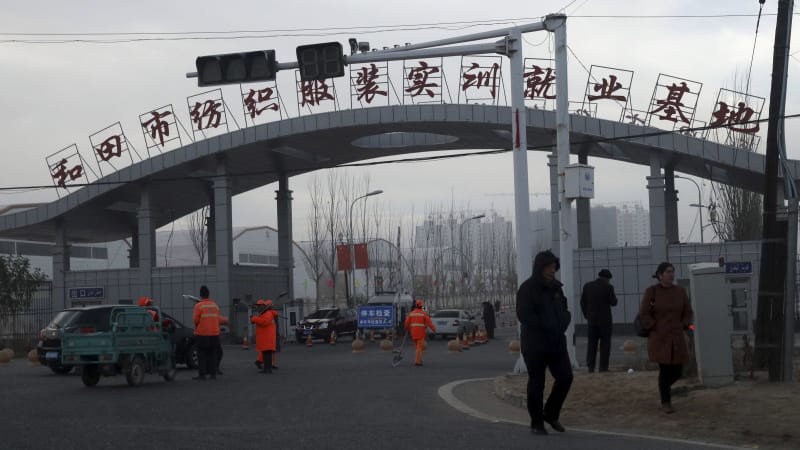Senator presses automakers on possible links to forced labor in China

Senator Ron Wyden is pressing automakers including Tesla and General Motors for more information about their supply chains amid concerns about forced labor in China.
The Democrat from Oregon sent letters to the automakers and top suppliers Tuesday. Wyden is requesting details about their efforts to ensure that none of the materials in their cars come from regions like Xinjiang, where the U.S. and others have alleged that China has pushed ethnic minorities into jobs programs.
The scrutiny comes amid a U.S. crackdown on goods from Xinjiang, where Uyghurs and other ethnic minorities are believed to be forced to work in “re-education” camps. Under a law passed in late 2021, materials even partially made in the region can’t be imported to the U.S. The Senate Finance Committee, which Wyden chairs, launched an investigation last year into whether major automakers are using parts made with forced labor from Xinjiang.
In the letters sent Tuesday, Wyden asks whether the car companies maintain a list of “foreign-language names” of suppliers. He’s also seeking the names of their five largest so-called tier 1 suppliers — which provide parts directly to the automaker — that have direct or indirect sub-suppliers in China.
“Information I have learned from the initial stages of the Committee’s investigation raises serious questions about tier 1 suppliers’ ability to ensure that sub-suppliers do not rely on forced labor,” Wyden wrote to suppliers including DENSO Corp., Continental AG, Magna International Inc., ZF Friedrichshafen AG and Robert Bosch GmbH.
In his letter to the automakers, which also included Ford Motor, Stellantis NV, Mercedes-Benz USA LLC, American Honda Motor Co. Inc. and Volkswagen Group of America Inc., Wyden cited a report by Sheffield Hallam University that highlighted links between Chinese companies with operations in Xinjiang and automakers using metal, batteries, wiring and wheels made there. The letter asked for responses by April 11.







